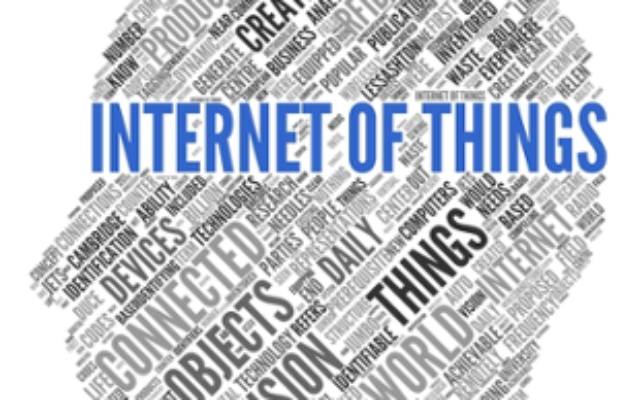Back in 2008 I wrote about how Yahoo could take on Google. 7 years have passed and there has been great innovation in search, yet my idea is still valid.
We still use intermediary search sites such as Skyscanner rather than Google flights. Job boards dominate rather than jobseekers connecting directly with recruiters. The intermediary site whether it is Ebay connecting buyers and sellers, Lastminute.com connecting hotels with travellers and Autotrader connecting car sellers with purchasers all still dominate.
Whether on your mobile on the web, there’s many of these intermediary platforms of varying quality offering you a wide range of apps or websites to download the same data multiple times.In the online job space (which I had an early hand in back in the 1980s) , I have LinkedIn, Jobsite, Monster, Jobserve, Reed and so on. Yet many of them advertise the same jobs.
My phone has an increasing number of job apps on it, none of them talking to one another so that when I respond to a job on one platform, it then doesn’t come up on searches elsewhere. In the accommodation space, should I use lastminute.com, hotels.com, hotelscombined.com, kayak, trivago, expedia.
The list goes on, yet it’s mostly the same hotels. Airbnb has innovated by generating new opportunities to stay but it’s still the same old model of intermediary platform connecting vendors and purchasers. There’s nothing in principle to stop the same vendors listing on multiple sites.
A decent search engine could do this and eliminate the middleman to produce a consistent joined up search experience. A vendor would simply self publish and then the search engines would index it, the public would find it and the intermediary sites and the proprietary searches would diminish.
the new connectivity
We talk about the Internet of Things and more “things” being connected and getting online. I’m glad to see this having written the UK’s first guide to getting online, back in 1992. It’s a natural evolution from companies and university to individuals and PCs to mobile phones to other devices.
However, these devices will need to communicate meaningful information in a meaningful way otherwise we will get lost in the noise. We talk about intelligent fridges that self order. I think such things are a waste of time. I might want to eat different food one week, perhaps I’m bored with the same stuff, perhaps there is a special occassional or I have friends over.
So I will always need an ah-hoc ordering mechanism that I can plug into to replenish my fridge, freezer, larder and anything else I care to order from a supermarket. Why should I need a special device in my fridge, another in my freezer, another in my larder to track all this when instead I could have a voice activated ordering system embedded in my kitchen wall and I can ask to put milk, bread and pasta on the shopping list just by speaking to it and which integrates with recipes to order what I need.
What value does an “intelligent” fridge really add here other than maybe to remotely query it from the office incase I need to buy milk on the way home? We need to also manage the data around internet of things, as some of the things are household related rather than related to me as an individual. The association between data generators and people is not 1-1 and this causes an issue for privacy, personalisation and advertising.
the new intelligence
having studied AI briefly at Edinburgh University and my Computer Science thesis on Character Recognition, I have a bit of a background in this area but certainly don’t claim to be an expert. Sadly there aren’t many jobs in the field. When I did study AI it was all about making sense of complex real world situations such as recognising objects, reading handwriting, and so called expert systems.
We can simplify this and say that for a machine to be intelligent it needs both a body of knowledge (including access to knowledge via various means) and to know what do with that knowledge. Wikipedia by itself is knowledge but a database by itself is hardly intelligent. A clever person who suffers memory loss would similarly struggle – the deduction and reasoning are perhaps still there but the memories for the algorithm to draw on are no longer accessible.
Intelligence, whether in machines or people, is the ability to take facts and apply a method in other to use the knowledge usually in a beneficial way. More fundamentally, it’s data and a complex algorithm. Terms such as the “knowledge graph” refer to the building blocks of such an algorithm and Google’s purchase of Metaweb was an important step in modelling objects (entities) and the relationships between them to gain a better understanding of the world.
data evolution
In order to have the Internet of Things work properly we need an agreed schema so that devices can share data in a meaningful way. It isn’t going to be much use if an intelligent fridge has a schema that tries to speak to my Grocery provider in a way that varies depending on what model of fridge I have and what Grocery provider I use for my shopping. We are only going to make sense of IoT when there are common schemas and common APIs and these schemas can be adapted dynamically as enhancements to them are agreed.
So this brings us back to the web and the semantic web. Despite 20 or more years of search engines we still don’t have a product based search engine. I can’t ask Google to find me all the jobs in an area by extracting data from job boards.
I can’t ask Bing to find me all the events near me because there is no schema for event publishing that allows them to be found and classified. I am still stuck in the land of the intermediary search, whether it is Skyscanner for flights, Autotrader for cars for sale, Zoopla for properties for sale or rent, Tourism sites for some event information, and so on.
We need a web which is open so that data can be published not just to the Internet of Things but to the web in general. If I am publishing an event why can’t I just put it on my own website and list it for free and for it to be indexable as an event in a search engine. Why should I be paying a site listing intermediary to do something that should be free?
I did hint at this in 2008 but things have moved slowly in the world of structured search. Perhaps the internet of things will bring about the long overdue change which makes search really useful. We can then use this data foundation as the basis for evolving algorithms in order that the internet can begin to be intelligent. Intelligence is after all data and an algorithm.
Craig
Article by channel:
Everything you need to know about Digital Transformation
The best articles, news and events direct to your inbox
Read more articles tagged: Featured, Internet of Things







